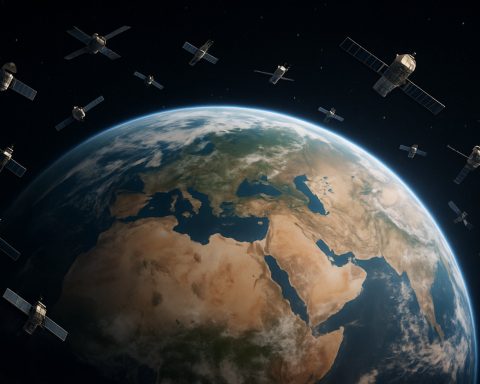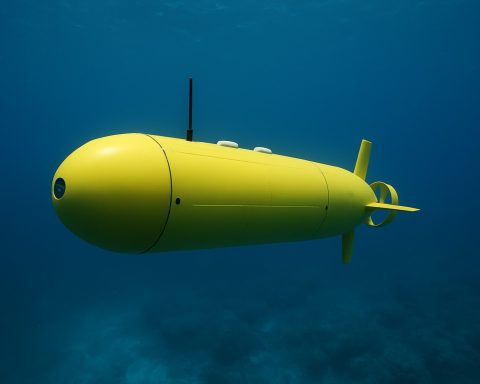- Porsche is leading a pioneering initiative in the EV industry to recycle spent batteries into valuable resources, ensuring sustainability and resource independence.
- The recycling process starts with shredding old batteries to create “black mass,” containing essential elements like nickel, cobalt, manganese, and lithium.
- The extracted materials are purified to meet high quality standards for new batteries, maintaining Porsche’s elite performance benchmarks.
- With Europe’s forthcoming battery regulations, Porsche positions itself ahead by incorporating more recycled content and ensuring traceability by 2031.
- This recycling initiative also strengthens Porsche’s supply chain against geopolitical uncertainties, emphasizing responsible sourcing.
- Porsche’s approach blends luxury with sustainability, signaling a shift towards a resource-conscious automotive future.
Amidst the rapid evolution of the electric vehicle (EV) industry, Porsche is charting an audacious path toward sustainability and resource independence. This revered automaker isn’t just crafting sleek, electric beasts; it’s also reimagining the journey of spent batteries. Through a groundbreaking pilot project, Porsche is transforming the remnants of high-voltage EV batteries into valuable resources, embarking on a mission to spearhead the future of automotive energy recovery.
Picture the mechanics at work: as old batteries meet their end, they are meticulously shredded, their valuable innards reborn as “black mass.” This dense granulate holds the promise of elements like nickel, cobalt, manganese, and lithium, each crucial to the heartbeat of EVs. From these worn-out cells, Porsche has deftly extracted about 65 tonnes of this raw treasure, a testament to innovation in the face of environmental challenge.
But the magic doesn’t stop there. The black mass undergoes an intricate purification process, evolving into high-purity elements ready to be woven back into new batteries. For Porsche, the consistency and quality of these recycled materials aren’t just requirements—they’re non-negotiable standards. The company is adamant that its new battery cells, potentially crafted with recycled content, will meet the elite performance benchmarks synonymous with its brand.
This ambitious recycling initiative isn’t just about the environment; it’s a strategic maneuver against the backdrop of Europe’s soon-to-enforce battery regulations. By 2031, stricter laws will demand a significant uptick in recycled content and traceability, and Porsche is poised to not just comply with these requirements but to set the standard industry-wide.
Through this lens of circularity, Porsche is not merely reducing its ecological footprint; it is fortifying its supply chain, ensuring materials are sourced responsibly and that its operations are resilient against the whims of geopolitical fluctuations. The project is a clarion call to the industry, reflecting Porsche’s unwavering commitment to sustainability and innovation.
At the heart of this endeavor is a clear message: the journey from waste to resource isn’t just feasible; it’s imperative. Porsche’s vision encapsulates a future where luxury and sustainability are inseparable partners, driving forward not just vehicles, but a movement towards a more resource-conscious world.
Porsche’s Transformative Approach to EV Battery Recycling: Setting New Sustainability Standards
Introduction
In a groundbreaking initiative, Porsche is pioneering the future of electric vehicle (EV) sustainability by redefining how spent batteries can be repurposed. Through an innovative pilot project, Porsche is extracting valuable elements from used EV batteries, positioning itself as an industry leader in sustainability and resource independence. This approach not only aligns with impending European regulations but also showcases how luxury and eco-consciousness can coexist seamlessly.
Exploring Porsche’s Revolutionary Battery Recycling Process
1. The Black Mass Transformation:
– Recycling Fundamentals: Porsche’s pilot project focuses on breaking down high-voltage EV batteries into a substance known as “black mass.” This process involves shredding the batteries to recover essential materials such as nickel, cobalt, manganese, and lithium.
– Purification for Reuse: The extracted black mass undergoes sophisticated purification processes to isolate high-purity elements. These are then reintegrated into the production of new batteries, ensuring they meet Porsche’s stringent performance standards.
2. Strategic Compliance and Innovation:
– Regulatory Foresight: With Europe’s forthcoming battery regulations, which will require increased recycled content by 2031, Porsche is strategically ahead. By setting elevated standards in recycling, the automaker is ensuring compliance while pushing the envelope in sustainable practices.
– Strengthening Supply Chains: This initiative safeguards Porsche’s supply chain, making it less vulnerable to geopolitical shifts and enhancing material traceability. The company’s project is an exemplar of how resilience and responsibility can drive operational strategies.
Critical Insights into the EV Recycling Landscape
1. Industry Trends and Predictions:
– Growing Demand for Recycled Materials: The EV market is anticipated to surge, with recycling playing a critical role in sustainable growth. According to market forecasts, the global EV battery recycling market size is expected to reach $3.1 billion by 2027 (Research Dive).
– Technological Advancements: Innovative recycling methods are continuously being developed to improve efficiency, reduce costs, and enhance the purity of recovered materials.
2. Challenges and Limitations:
– Complexity of Recycling Processes: The recycling of EV batteries is complicated and costly, requiring advanced technologies to extract materials efficiently.
– Environmental Concerns: Despite recycling, the initial battery production process still has significant environmental impacts. Efforts are being made to minimize ecological footprints through improved designs and cleaner production methods.
Practical Tips for Readers
– Consider Battery Recycling Programs: If you own an EV, research local battery recycling options to contribute to the sustainability movement.
– Stay Updated on Regulations: For businesses, staying informed about upcoming battery regulations can help align strategies with compliance and industry leadership.
– Educate Yourself on EV Technologies: Understanding the components and lifecycle of EV batteries can guide more informed purchasing decisions and support sustainable product choices.
Conclusion
Porsche’s bold move toward transforming EV battery recycling is setting a distinguished standard in the automotive industry. By integrating luxury with sustainability, Porsche is not only enhancing its brand value but also catalyzing a larger transformation within the industry. As regulations tighten and the demand for sustainable practices heightens, these innovative initiatives are crucial for paving the way toward a resource-responsible future.
For more information about Porsche’s sustainability initiatives and their latest models, visit Porsche.









